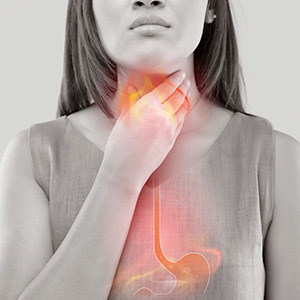
Gastroesophageal Reflux Disease (GERD) is a chronic condition characterized by the backflow of stomach acids into the esophagus, leading to symptoms such as heartburn, acid regurgitation, and discomfort. This condition arises from the dysfunction of the lower esophageal sphincter (LES), a muscular valve that opens to allow food into the stomach and closes to prevent stomach contents from rising back up. Recognizing the causes and adopting effective prevention strategies can significantly reduce the incidence and severity of GERD symptoms.
Factors Contributing to GERD
Lifestyle choices and dietary habits play a significant role in exacerbating GERD symptoms. Consuming large meals, particularly before bedtime, can increase the likelihood of acid reflux, as can the intake of certain foods and beverages, such as caffeine, alcohol, chocolate, and fatty or spicy foods. In addition, obesity and smoking have been identified as major risk factors for GERD due to the increased pressure on the abdomen and the relaxation of the LES. Thus, making conscious decisions about diet and lifestyle can substantially mitigate the risk and discomfort associated with GERD.
Lifestyle Modifications to Mitigate GERD Symptoms
Modifying one's lifestyle is a pivotal step in managing GERD symptoms effectively. This includes dietary adjustments, where individuals are encouraged to avoid foods and beverages known to trigger GERD symptoms, such as spicy foods, citrus fruits, chocolate, and caffeinated or alcoholic drinks. Additionally, adopting habits such as eating smaller, more frequent meals instead of large ones and avoiding eating close to bedtime can significantly alleviate the discomfort associated with GERD. Also, maintaining a healthy weight through regular exercise and a balanced diet can reduce the pressure on the stomach, thereby decreasing the likelihood of acid reflux.
Causes of GERD
GERD is primarily caused by the weakening or inappropriate relaxation of the LES, allowing stomach acid to escape into the esophagus. Several factors contribute to this condition:
- Obesity: Excess body weight can increase abdominal pressure, promoting the reflux of stomach contents.
- Diet: Certain foods and beverages, such as spicy foods, citrus fruits, chocolate, caffeine, alcoholic beverages, and carbonated drinks, can trigger GERD symptoms.
- Smoking: Tobacco use can weaken the LES and increase acid production, exacerbating GERD symptoms.
- Hiatal Hernia: This condition, where part of the stomach protrudes into the chest cavity, can impair the function of the LES.
- Pregnancy: Hormonal changes and physical pressure from the growing fetus can lead to increased reflux during pregnancy.
- Medications: Some medications, including aspirin, certain muscle relaxers, and blood pressure drugs, can aggravate GERD.
Prevention of GERD
Implementing lifestyle and dietary changes is key to preventing GERD or minimizing its symptoms. Here are effective strategies for GERD prevention:
- Maintain a Healthy Weight: Reducing excess weight can decrease abdominal pressure and the risk of acid reflux. Even small amounts of weight loss can have a significant impact.
- Adjust Eating Habits: Eat smaller, more frequent meals rather than large meals to avoid overloading the stomach. Avoid lying down immediately after eating and wait at least 3 hours before going to bed.
- Identify and Avoid Trigger Foods: Keep a food diary to identify specific foods and beverages that trigger your GERD symptoms and limit their intake.
- Quit Smoking: Smoking cessation can improve LES function and reduce acid reflux.
- Elevate the Head of Your Bed: Raising the head of your bed by 6 to 8 inches can help prevent stomach acid from rising during sleep. Use wooden blocks or a foam wedge under the mattress.
- Wear Loose-Fitting Clothing: Tight clothing around the waist can increase abdominal pressure and the risk of reflux.
- Manage Stress: High-stress levels can increase acid production and exacerbate GERD symptoms. Incorporate stress-reduction techniques such as exercise, meditation, or deep breathing exercises into your routine.
Treatment Options for GERD
Treatment for GERD aims to reduce the symptoms and heal any damage caused by acid reflux. Over-the-counter antacids can provide quick, short-term relief by neutralizing stomach acid. H2-receptor antagonists (H2RAs) and proton pump inhibitors (PPIs) are more potent options that reduce acid production and are available in both OTC and prescription forms. In severe cases, surgical interventions such as Nissen fundoplication may be considered to reinforce the LES. Lifestyle and dietary adjustments should accompany these treatments for optimal management of GERD symptoms.
Conclusion
GERD is a common yet manageable condition that can significantly impact quality of life. Understanding its causes and implementing preventative measures can help control symptoms and reduce the frequency of acid reflux episodes. For individuals experiencing persistent or severe GERD symptoms, it's important to consult with a healthcare provider to explore further treatment options and ensure proper management of the condition. Through proactive management, most people can achieve substantial relief from GERD and improve their overall well-being.
